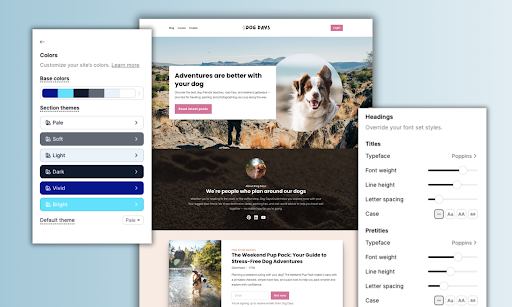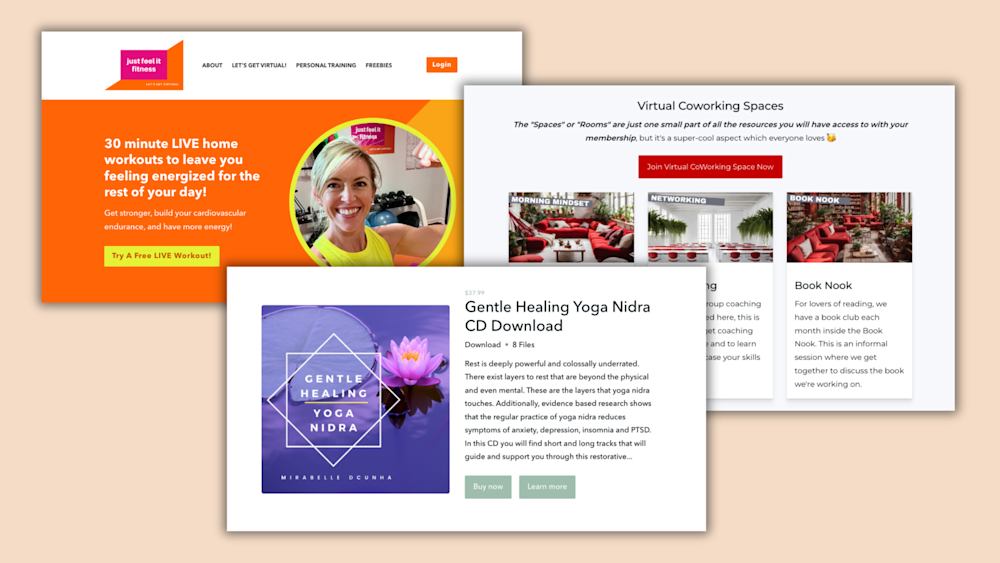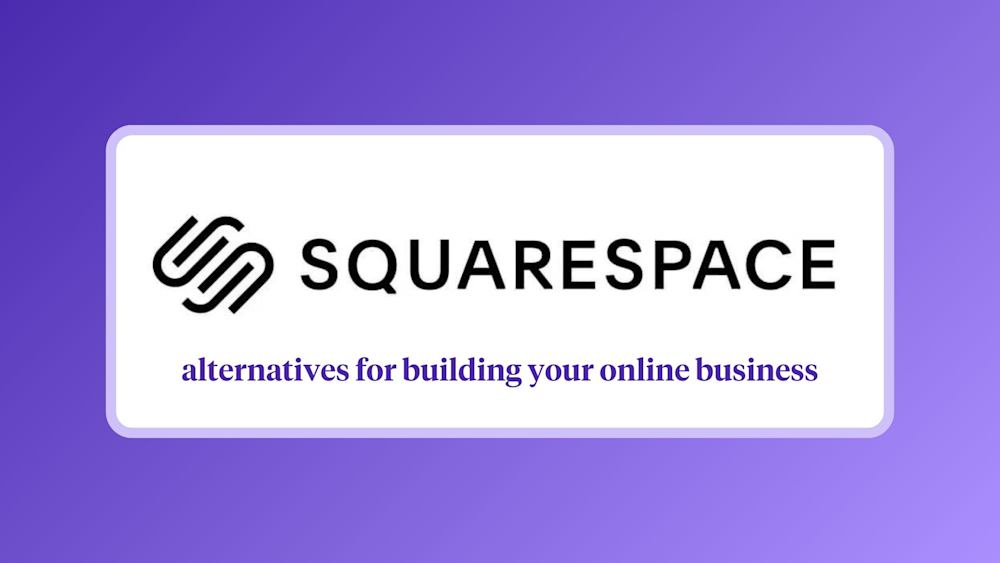Your inbox is inundated with messages from your favorite creators.
The wording is different, but the message is the same: They want you to make 2020 the year you start your business.
On the one hand, adrenaline is racing through your body as you think about generating income from your passion. Your day job isn’t cutting it financially or professionally anymore.
You’d really like more autonomy in your career, too.
On the other hand, you don’t have an endless reserve of cash or time to test your ideas.
But before you let your doubts go any further, we just want to let you know: You have what it takes to become a successful entrepreneur.
But don’t take our word for it.
Read these pearls of wisdom from 11 of the most successful creators on Podia for advice on achieving entrepreneurial success.
As you’ll soon learn, you already have or can learn the skills needed to run a profitable business.
Method 1: Overcome procrastination and self-doubt
There are plenty of excuses would-be entrepreneurs use to limit their potential.
But if you’re serious about starting a business, you’ll need to stop procrastinating and reign in self-doubt.
Entrepreneur Amanda Boleyn of She Did It Her Way recommends creators:
“Resist the urge to keep yourself safe and buffer with ‘I don't know where to start.’
Every time you say or think ‘I don't know’, that is what your brain will manifest, leaving you in a pool of confusion.”
But not all questions are bad -- the voice of doubt can be transformed into a voice of creativity and inspiration.
Amanda recommends, “If you're stuck and find yourself saying, ‘But, I don't know . . .,’ ask yourself, ‘But if I did know, what would be the answer?’
Ask yourself, ‘What would BLANK do?’ and insert someone who you look up to and follow.
Solve the problem or challenge from a new perspective, a new way to go about finding the solution. Action is what creates clarity.”
Then, after identifying your self-doubts and alternatives to them, it’s time to take action.
Shawn Leamon, founder of Divorce and Your Money, recommends makers, “Make a simple plan and execute on it. No need to overcomplicate your business!”
In other words, when you’re getting started, map out the essentials of running your business but don’t get mired in the details.
“As an entrepreneur, there are so many things you could be doing, but don’t let tweaking a website or other busywork become a method of procrastination,” cautions Elizabeth Stapleton.
“It’s easy to end up in a holding pattern when you stop working on what matters and start trying to make every little thing perfect.”
One way to cope with perfectionism and hesitancy is by taking action.
Your action doesn’t have to be the perfect answer to the situation. It just has to be something that inches you a little closer to your goal.
Megan Minns started her self-employment journey as a graphic designer. But after some time, she felt that it was no longer the right path for her.
She then opened an Etsy shop but received a cease-and-desist letter from a competing shop. Megan next became a virtual assistant (VA), and then a project manager.
There were plenty of times when Megan could have let self-doubt or reservations hold her back, yet she persisted.
You should follow Megan’s example.
There will be many times when you look at your past business decisions and wonder why you ever made them.
However, doing something (even the wrong thing, sometimes) can teach you valuable lessons that can lead you in the right direction.
But staying put?
That gets you nowhere.
Blogger Krista O’Reilly-Davi-Digui tracks her goals and sets aside time for deep work. Despite that, she feels that she couldn’t have envisioned many of the opportunities she had if she hadn’t “shown up”.
Need further convincing?
Well, research has shown that business owners can transform their mindsets by taking action.
Specifically, the study found that founders of high-growth companies can transform negative mental states by taking consistent action.
Engaging in forethought and relying on support from others were among other helpful methods, too.
With this information in mind, one of the best antidotes to setbacks and a negative mindset is to take action.
As Rodolphe Dutel of Remotive said, “Starting now is more important than a perfect start. Get started before you're comfortable to show the output.”
Still, as you overcome inaction, it’s easy to fall prey to other roadblocks like busyness and multitasking.
See what our creators have to say about cutting down obstacles in your path to productivity.
Method #2: Learn how to be more productive
Time and money can be tight when your business is starting out.
For both the sake of your business’ health and your wellbeing, learn to stop being busy and be productive.
Being productive isn’t a matter of completing tasks in record time. Productivity means prioritizing work that will maximize your business’ profits and wellbeing.
It also means knowing which business tasks you can outsource so you can focus on tasks that play to your strengths.
As for how you can actually become more productive, there are plenty of options.
The most obvious way is to eliminate distractions.
Knowledge workers spend an average of 40.1% of their productive time multitasking with communication tools.
In fact, knowledge workers are estimated to have only 1 hour and 12 minutes per day where they aren’t interrupted by email or instant messaging.
For that reason (and many others), you’ll also want to stop multitasking.
Science has shown many times over that multitasking isn’t good for productivity or your overall wellbeing.
For instance, research has found that in order to do “Task B” well, people need to first stop thinking about “Task A”.
However, their attention on “Task B” can suffer if they haven’t completed “Task A”.
The same study also found that there needed to be a time pressure to complete the first task for participants to disengage and perform well on the second task.
As if you needed another reason to avoid multitasking, mull over this: it can make it hard to filter out irrelevant stimuli or information.
Heavy media multitaskers were more susceptible to irrelevant environmental stimuli and irrelevant representations in memory. This may potentially have been because they weren’t good at sorting out interference.
But you have more ways to boost your productivity besides single-tasking.
Creators like Jenay Zahler of Namaste Jenay have found productivity success with batching, or completing similar tasks in one time period.
Focusing on a set of tasks can do more than ensure you don’t procrastinate -- it may help you avoid disruptions, too.
One study found that participants switched to disruptions only 6% of the time when they had higher mental workloads. This rate jumped to 94% when they had lower mental workloads.
For Jenay, batching “is something that's allowed me to avoid ‘content creator fatigue.’ I've got designated time slots in my calendar each week that help me batch alike tasks and improve my productivity week after week.”
Likewise, though it’s possible to work more productively from home, consider creating a separate workspace for yourself.
Dave Hickman of Writer’s Edit used to enjoy working from home. After a few months, Dave found that he had become lonely. He felt his productivity and efficiency had taken a hit as well.
Dave then decided to work at his local library and found that his productivity rebounded.
In Dave’s words, “These days, I go to the library every day. I've banned myself from working from home.
The segregation between my home and work life has revolutionized my productivity, and I still avoid the rush-hour sardine commute.”
Yet another way to increase your productivity is by keeping your to-do list in check.
This entrepreneur, as an example, writes down their daily to-do list on a notecard.
Whatever they don’t finish for the day goes into their weekly to-do list in a Google document. They then rip up the day’s to-do list and say “done!” to signify they’re done working for the day.
Finally, if you feel that you’ve optimized your schedule to the fullest and still have too many items on the docket, hire a virtual assistant (VA).
VAs can help businesses with nearly any task imaginable, from customer service and support to managing your inbox.
Basically:
Aspiring entrepreneurs should focus on boosting their productivity from the get-go. From single-tasking to working away from home, there are endless options to choose from.
Take note, however, that on your path to optimal productivity, you will make mistakes. And that’s not a bad thing. In the next section, creators explain how to treat failure as a learning experience.
Method #3: Learn how to deal with failure
Chances are you’re going to fail sometimes in your business.
The founder of Spanx faced rejection and obstacles multiple times when starting her business. But in 2012, she became the youngest female self-made billionaire.
Her example isn’t an anomaly -- even the most successful business owners fail. It’s by learning from and overcoming failure that many entrepreneurs see the success they crave.
“To run a successful business, you have to first get comfortable running an unsuccessful business,” said Ryan Kulp of Micro Acquisitions, “because most of the time, success comes later.
You may be doing all the ‘right things’ on Day 1, but it won't kick in or be visible until Day 237.”
Indeed, it’s by welcoming failure that you can grow as an entrepreneur and develop your business.
The first way to embrace failure is by looking at it as more of a learning experience than a defeat.
Jessica Coté of Rosy Revolver notes, “Business practices, branding, and even the products tend to evolve over time regardless of how flawless everything is when you first start, so just bite the bullet and roll it out.
You can always make changes, you can always tweak and adjust along the way. The more you learn, the better you'll do. You'll learn best through just getting started.”
Aside from accepting failure, seeking help can boost your chances of success, too.
For example, let’s say you're worried about becoming one of the 29% of businesses who failed because they ran out of cash.
You don’t have to spend each day stressing over each penny you spend. You could learn how to manage your business’ finances and consult with an accountant.
Or, if you’re worried your product may fail, get feedback from customers about your product ideas and prototypes.
After all, 76% of consumers expect brands to understand their needs and expectations. Working with them as you develop ideas products is one of the best ways to do that.
According to Vanessa Ryan, “Launching any type of business can be difficult, and getting started is the most difficult step!
Be sure to listen to what your customers need from you, and do your research, fill a gap, and create an opt-in freebie that shows people your genius and gives value first.
Once you start to build that love and trust, you can funnel people to your paid offers and grow from what you know!”
Finally, acknowledge that your first business may not remain with you for the rest of your career -- and that’s perfectly okay.
Research has found that 25.6% of business owners were run by serial entrepreneurs, or those who had started multiple businesses. The same study also found that prior business experience increased the longevity of the next business.
To that end, it may take a few tries to finally launch the profitable business of your dreams.
One reason why previous business experience can contribute to future business success is that it can give entrepreneurs a more positive view of failure.
One study found that having previous startup experience was strongly associated with a more positive attitude towards failure, as was closing a business.
The study also found that closing a business because of poor performance was an excellent source of learning. Closing it for personal reasons did not have the same effect.
Although this may seem counterintuitive, it can happen in real life.
Bianca Bass started a business while at college. She eventually arrived at the point where she was about to be kicked out of her university and where her finances and relationships were strained.
Despite these setbacks, Bianca now feels that she’s doing something wrong if she isn’t failing often enough.
If nothing else, remember that being stigmatized as a failure can be a blessing in disguise.
One study found that stigmatization from a failed business could trigger epiphanies, personal insights, and viewing the failure as a positive experience.
Entrepreneurs can then use this learning for future businesses, even if they are not the founder of those businesses.
Look, embracing failure in your business can feel like the hardest thing you’ll ever do. Despite that, it’s a worthwhile and necessary thing if you want your business to thrive.
Besides treating each setback as a learning experience, you’ll want to keep a positive mindset, too.
Method #4: Stay positive
It’s not a secret -- entrepreneurship is seldom a cakewalk for even the most prepared business owners.
83% of small business owners in the U.K, for instance, said they experienced stress in the past six months. 17% of entrepreneurs said they feel “highly stressed”.
But don’t let low points convince you to throw in the towel. They’re necessary pit stops on the road toward running a profitable business.
To keep your chin up, find ways to relieve your stress and maintain a positive mindset day-in and day-out.
The first approach is to examine your own feelings.
As Becky Mollenkamp notes, “When you feel stuck, it’s tempting to think you just need to purchase one more tool or learn one more thing and that will fix everything.
More often than not, though, what’s really going on is a mindset issue.
“Even if you don’t realize it, you likely have a whole host of limiting beliefs that are causing you to self-sabotage and stay in your comfort zone. Invest in yourself (and your self-belief) and everything will change."
Becky’s advice isn’t just wise -- it’s also research-backed. A recent research study found a feeling of autonomy and a positive mindset were “essential for entrepreneurial success”.
After you’ve examined your mindset, take action to support and increase your journey towards a positive mindset.
The co-founder of Names.org tries to do at least one thing outside of his office each day. He found that doing so made him more productive when he returned to work.
Mojca Zove of Super Spicy Media, also recommends makers “be patient and restock on ice cream”.
A successful creator by any measure, Mojca notes that she struggled with patience in the beginning. She felt she had failed when she didn’t meet her goals on the first try.
“Earning a living as a creator is incredibly fulfilling, but it doesn’t happen instantly. It’s not like a pre-made dish you throw in a microwave,” Mojca notes, “but rather a 4-course meal you have to cook in stages.
But at the very end it’s that much tastier, so don’t worry if you’ll stumble the first couple of times.
Restock on ice cream for when you’ll have a bad day, watch some funny videos, and get back on your feet the next day. I promise it’s worth it.”
Not a fan of ice cream? There are plenty of substitutes to give yourself a positivity boost.
Research has found that spending 10 minutes with cats and dogs significantly reduced students’ levels of cortisol, a stress hormone.
A separate study found that after viewing online cat media, participants’ positive emotions were higher, and negative emotions were lower.
Of course, don’t discount the benefits of exercising to clear your mind, either.
Like some entrepreneurs, you could take up a mind-clearing and stress-draining activity like boxing. Something more moderate, like a short walk, may help, as well.
Whatever it is that helps you stay positive, the important thing is that you do it, and do so without shame. Getting down and out isn’t just normal, it’s part of the process -- but so, too, is getting back up the next day.
You can be a successful business owner
You need more than a unique business idea to succeed as an entrepreneur.
You’ll also need positivity, patience, and determination to carry you through the hills and valleys of entrepreneurship.
Some things that Podia creators recommended aspiring makers do to become successful entrepreneurs include:
-
Overcome procrastination, self-doubt, and hesitancy
-
Eliminate distractions, maximize your productivity, and outsource or automate your tasks with tools like Podia
-
Embrace failure and learn from your mistakes
-
Maintain a positive mindset, so you won’t let setbacks keep you down
Rough patches are inevitable in business.
But what isn’t inevitable is outright failure or unwinnable scenarios, and with the above ingredients -- positivity, action, learning from failure, and more -- the only thing inevitable is that you will, if you keep at it, become a better and better business owner on the daily.



